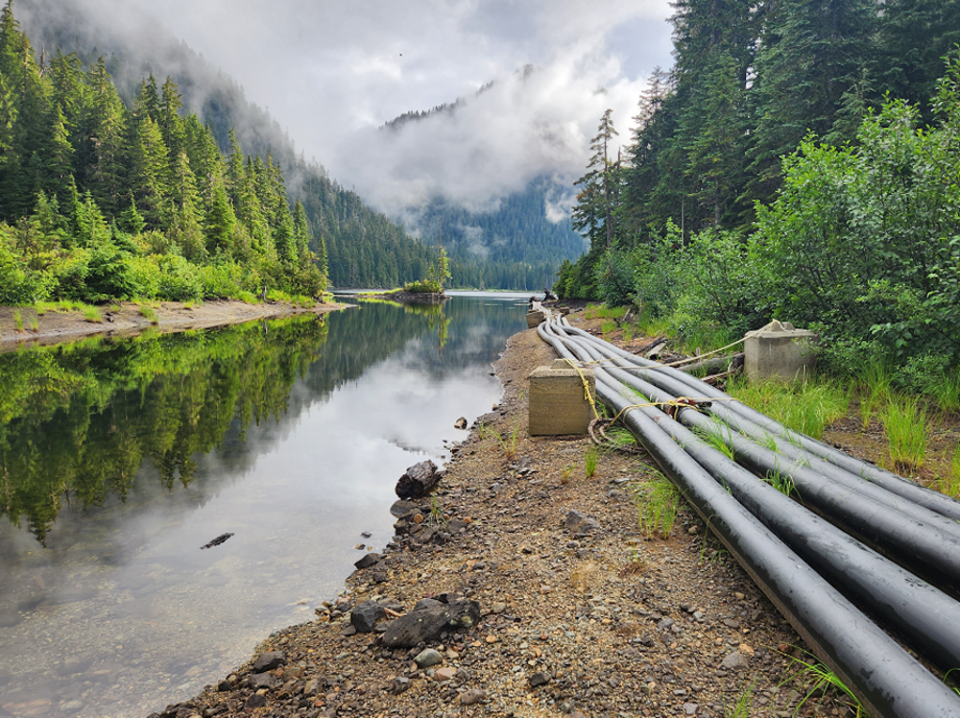The estimated 24,000 Sunshine Coast Regional District (SCRD) utility customers complied with outdoor water use rules in 2023, for the most part. Despite restrictions continuing into October, the SCRD issued only two violation fines, according to a report on last year’s regional drought management plan.
That summary, included on the agenda of the Jan. 11 committee of the whole meeting, showed a total fine value of $1,000 for the pair of tickets issued during Stage 4 restrictions. In 2022, 24 such fines were issued, totalling $11,400. The annual fine count in 2021 was eight.
The report explained that local government takes a compliance-based approach to water use restriction enforcement. That begins by providing education and information to all users on the importance of following restrictions. Written warnings are sent to those who appear to be breaking the rules, followed by fines only when violations are confirmed and continued.
In 2023, 32 clients were informed in writing of suspected violations and the same number of properties were visited by bylaw enforcement staff for investigations. Clients within the Chapman system accounted for 45 of those follow-up interactions, one was with a Grantham’s area user and 13 involved customers of the South Pender system. Enforcement follow up files were down last year from the record high level of 126 in 2022, with 120 of those associated with Chapman system properties.
Ninety-five per cent of the alerts regarding potential violations came in from the public via the reporting form available on SCRD.ca or email. Staff patrols through water service areas were responsible for the remainder.
2023 violation reports were highest when properties were at Stage 3. Thirty-nine per cent came in during that timeframe. While properties were at Stage 2, 34 per cent of the reports were received, followed by 20 per cent during Stage 1. Seven per cent of reports occurred when Stage 4 restrictions were in place.
Continued 2024 drought anticipated
Along with a review of the past year’s data on water supply and use, the report states that “drought impacts are likely to continue into 2024." It quotes Environment and Climate Change Canada’s summer Integrated Seasonal Climate bulletin statement to support that projection. “Drought response continues to be a SCRD priority,” the report states.
To help elected officials make plans for coming dry season, staff noted that a Water Strategy and a Water Efficiency Plan will be presented to the board in the first quarter of 2024.
2023 water restrictions
Last year, “a hot, dry, spring and summer coupled with high community demand significantly impacted SCRD water systems,” the report states.
More than 80 per cent of BC’s water basins reached Level 4 or 5 conditions with the Coast assessed at Level 5 by mid-August. That is the British Columbia Drought and Water Scarcity Response Plan most severe basin condition level, described as one that will have “almost certain adverse socioeconomic effects.”
The region’s Chapman and Eastbourne (Keats Island) systems each experienced Stage 4 use restrictions, which ban almost all outdoor water uses in the most recent dry season. Eastbourne was at that stage from July 31 to Oct. 11, reaching what the report called “concerningly low production” in its four supply wells by the end of that period. Plans are under discussion at the board level for the drilling of an additional well for that system.
For the Chapman system, which serves the majority of the region’s water clients in areas from Halfmoon Bay to Langdale, 2023 saw 156 days of restrictions and as of mid-September, 19 days at Stage 4. Those situations paled compared to 2022 results, when restrictions for lasted for 249 days (into mid-December), with 104 days at Stage 4.
Last year, the South Pender supply was placed on Stage 3 for the first time since the SCRD took on responsibility for that system. The report notes that infrastructure at its auxiliary supply source, Harris Lake, supports access to about 20 per cent the maximum drawdown allowed by the SCRD’s license for that lake. A 2024 budget proposal is being considered to assess what is in place and complete engineering designs for recommended upgrades.
The five remaining SCRD-managed water systems remained at Stage 1 through the annual conservation timeframe which start May 1 and lift Sept. 30, unless a need to continue them is identified.



